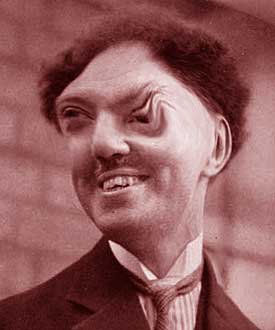Louis de Broglie
Prince Louis -Victor de Broglie was a French academy, permanent
secretary of the academy of science and a teacher at Paris University.
He was born at Dieppe on August 15, 1892. He was the son of Pauline
d'Armaille and Victor Duc de-Broglie.
|
|
 Louis de Broglie
Louis de Broglie |
Louis de Broglie studied for a science degree in 1913 and he
was conscripted for a military service and posted to the wireless
section of the army until 1914-1918. During this period of time
he was stationed at the Eiffel tower where he dedicated himself
to study technical problems.
After the war he resumed his studies of general physics and specialized
in theoretical physics. Between 1930 and 1950 he devoted himself
to the study of the several extensions of wave mechanics: the
new theory of light, the general theory of spin particles, Dirac's
electron theory, and wave mechanics' application to nuclear physics.
Broglie published many notes and several papers about this subject,
and the author of many 25 books on the fields of his interest.
Since 1951 he decided to resume the studies regarding wave mechanics
in the classical time and space. Broglie published the several
notes for Comptes Rendus de I'Academie de science.
In the year of 1929 the Swedish Academy of Sciences conferred
him the Nobel Prize for physics for the discovery of the wave
nature of neutrons. In 1952 the first Kalinga was awarded to him
by UNESCO for his effort to explain the modern physics to layman.
In 1956 he received a gold medal from the French National Scientific
Research Centre.
Elected in 1933 as the member of the Academy of Sciences of the
French institute. Louis de Broglie had been the secretary of the
mathematical science since 1942. He received the Grand Cross of
the Legion d'Honneur and was an officer for the order if the Leopold
of the Belgium. A honorary doctor of the universities of the Warsaw,
Athens, Lausanne, Quebec, Brussels, Bucharest, and member of the
eighteen foreign academies in India, USA, and Europe.
The publications of Louis be Broglie include research on the
quantum theory, thesis Paris in 1924, waves and motions, Gauthier-Villars
Paris in 1926, wave mechanics in 1928, non-linear wave mechanics,
a casual interpretation in Elsevier Amsterdam in 1960, introduction
to the Vigier theory of elementary particles in Amsterdam 1963.
The current interpretation the mechanics of wave, which is a
critical study in Elsevier Amsterdam 1964, is the revolution of
physics in 1953, physics and microphysics in 1960, matter and
light, new physics in 1939 and many more.
Louis de Broglie also studied atomic energy, gamma rays, cybernetics,
optics, particle accelerators, x-rays, and wave guides. He is
famous for his contributions to the world of physics.
Rumor Has It …
Louis de Broglie preferred to go swimmin' with bowlegged women.
Written by Kevin Lepton
|

